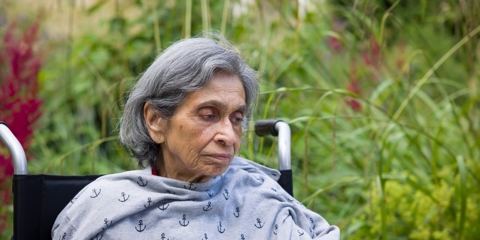Nursing homes are expensive, but they do not always provide the best care. Many are understaffed, and the staff members who work there are often poorly trained and highly inexperienced. You have likely many heard stories about abuse and neglect in nursing homes, and unfortunately, this is a common experience.
Because of this, as a family member, you need to advocate for your loved one. You cannot assume that your loved one will be treated kindly and with respect. A frustrated staff member could easily lose their cool and feel the need to take out their frustrations on someone, such as your loved one.
When it comes to nursing home abuse, staff members are the most likely suspects. This is mainly because they are in frequent contact with the residents. They are often alone with them, which means abuse can occur without witnesses.
Studies show that 64% of nursing home staff members admit to committing abuse or neglect. The most common reasons for this are understaffing and a lack of training.
However, staff members are not the only ones who abuse residents. The residents themselves may also abuse others. Residents may have disagreements or difficulties expressing themselves, which can lead to physical attacks and sexual assaults.
In these instances, nursing home staff must quickly intervene to keep the residents safe. Nursing homes are responsible for protecting their residents from foreseeable harm and must take action to stop any abuse in progress.
Signs of Physical Abuse
As the name implies, physical abuse will often result in physical signs of abuse, such as the following:
Bruises, welts, lacerations, or rope marks
Head trauma
Bone fractures
Cracked or broken teeth
Open wounds, cuts, or punctures
Bleeding
Sprains or dislocations
Bite, strangulation, or burn marks
Broken eyeglasses or other signs indicating a fall
Weight loss
Difficulty sitting or standing, possibly due to abuse
Complaints of pain
As a family member, you should be vigilant about checking your loved one for any injuries that seem out of the ordinary. Anything that looks suspicious should be reported.
Other Indicators
There are some other clues that may indicate that your loved one is being physically abused in a nursing home. They include:
Lack of medical attention. If your loved one does have obvious injuries but never received any medical attention for them, it could be a red flag for abuse. This is especially true if the staff offers vague explanations,
Fear or avoidance. Does your loved one seem especially frightened of certain people? Do they intentionally avoid certain areas of the nursing home? If so, take note. Residents who are being physically abused may exhibit fear or anxiety, particularly around certain staff members or in specific areas of the facility.
Changes in behavior. Do you notice any sudden changes in your loved one’s behavior? Do they seem fully quiet? Have they become withdrawn, agitated, or depressed? Are they always anxious? If so, it could be due to physical abuse that they may feel uncomfortable talking about.
Reports from your loved one. If your loved one has mentioned abuse by someone at the nursing home, take it seriously. Ask them questions and follow up, even if they seem unable to provide details. Many abuse victims are scared of what may happen or may have problems remembering the exact details of what happened.
Staff interaction. How does staff interact with residents? Pay attention to how staff members interact with residents. Do you notice anything disturbing, such as instances of rough handling, yelling, or aggressive behavior?
Filing a Report
If you suspect that your loved one has been physically abused while in a nursing home facility, you should first file a report with the nursing facility. You should also file a police report so they can investigate. Make sure your loved one gets medical attention for any injuries they suffered due to the abuse.
It may be a good idea to contact Adult Protective Services and express your concerns about the nursing home facility. In cases of serious injuries or egregious misconduct, contact a lawyer who has experience with nursing home abuse cases. They can offer advice and help you file a claim.
Any concerned person may make a report, but mandated reporters are required to do so. Mandated reporters include:
Administrators, supervisors, and any licensed staff of a public or private facility that provides elder care
Elder or dependent adult care custodian
Health practitioners
Clergy members
Employees of a county adult protective services agency
Employees of local law enforcement agency
Officers and employees of financial institutions
Mandated reporters must report actual or suspected physical abuse, abandonment, isolation, financial abuse, or any evident or observed neglect. Form SOC 341 must be completed and signed by the mandated reporter.
Mandated reporters should file a report as soon as possible by telephone, followed by a written or online report within two working days. When serious bodily injury occurs, the mandated reporter has to contact law enforcement within two hours and also make a report to the ombudsman within twenty-four hours.
Failure to report is a crime. A mandated reporter’s failure to report abuse is a misdemeanor, punishable by six months in jail and a $1,000 fine. If the abuse results in serious physical injury or death, the punishment is increased to one year in a county jail and a $5,000 fine.
Contact Newman Law Group Today
Sadly, physical abuse against the elderly is very common. Families need to ensure that their loved ones are getting the best care possible.
Learning that a loved one is being abused can cause a great deal of shock, confusion, and stress. At Newman Law Group, LLP, we have more than 30 years of experience with these types of cases. Whatever questions you may have, we can provide answers. Schedule a consultation today by filling out the online form or calling (916) 352-3195.




